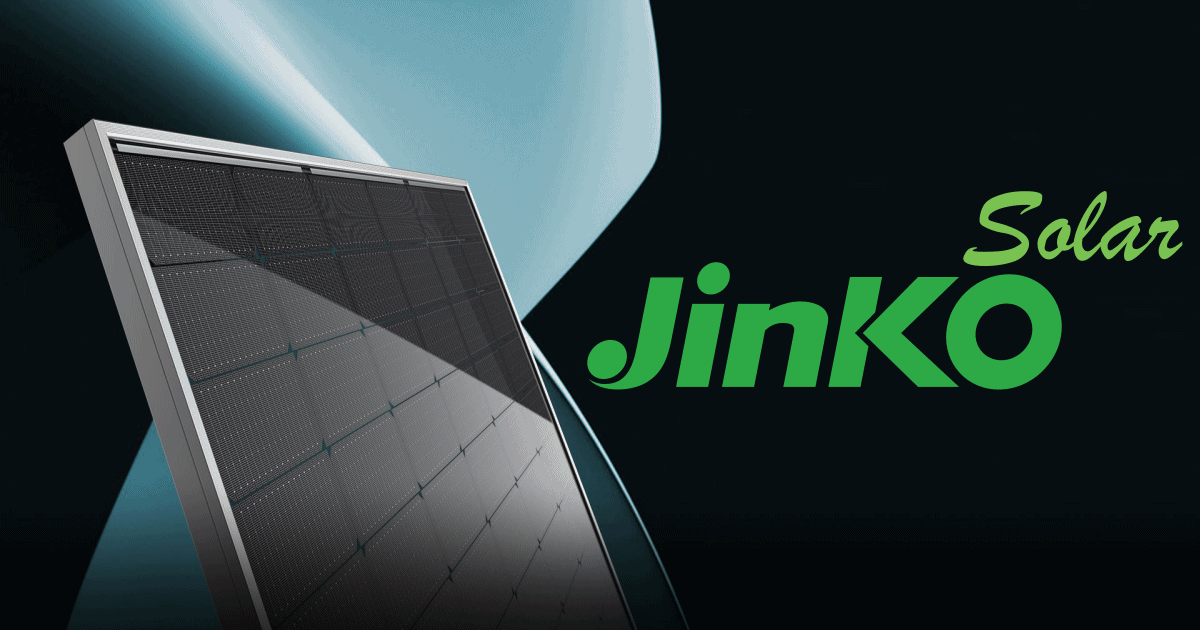
Solar panel manufacturing goliath JinkoSolar says it is more than halfway towards reaching a commitment to power all its operations with renewables-based electricity.
Back in 2019 JinkoSolar signed on to the RE100, which is a global initiative involving major companies committed to running on renewable electricity. Jinko pledged to power all its operations with 100% renewable electricity by 2025.
Solar panel production is an energy-intensive endeavour1 and Jinko is a huge consumer of electricity. I don’t have more recent figures, but from 2018 to 2020 total electricity consumption across all of JinkoSolar’s sites:
- 2018: 1,557,574 MWh
- 2019: 1,834,416 MWh
- 2020: 2,636,216 MWh
… and the company’s production has grown significantly since then.
A Bit Over Halfway There
Jinko announced this morning it has reached 51.3% clean electricity across its operations, which includes 12 manufacturing facilities in China, Malaysia, Vietnam and the United States. This has been achieved with a focus on energy efficiency and a mix of hydro, wind and of course solar energy; through projects it has developed or purchased and various power purchase agreements.
A least one of its factories is already at the 100% mark. Back in June we reported Jinko’s manufacturing facility in Malaysia was running on power from green sources.
Commenting on the 51.3% achievement, VP of JinkoSolar Dany Qian said:
“After years of hard work we’re proud to have reached this significant milestone. It is proving the business case that well-managed companies can reduce the greenhouse gases that are causing the climate crisis while simultaneously reducing their energy costs. Now that renewable energies are more mainstream and the cost of the energy is far lower, ecological responsibility can be good business.”
JinkoSolar is aiming to hit the 60% renewables mark by the end of 2023. As for reaching 100% by 2025, that may turn out to be a bigger challenge than it originally thought given increased production at an average rate of 40-50% each year.
According to the company, this year’s production will be approaching double that of 2021. Jinko estimates its solar panel shipments to be in the range of 41.5 GW to 43.5 GW for the full year, and its annual production capacity for mono wafer, solar cells and solar modules to reach 65.0 GW, 55.0 GW and 70.0 GW respectively by the end of 2022.
JinkoSolar panels have been very popular in Australia given their performance and comparatively low pricing point. Based on more than 1,900 JinkoSolar reviews and ratings from Australian customers here on SolarQuotes, the company has achieved 4.7 stars overall and 4.8 stars in the last 12 months.
Jinko panels are popular with Australian solar installers too, achieving second-place in the SQ Installer Choice Awards for the best solar panels in 2022 in the budget category; the same ranking as in 2021.
JinkoSolar is currently listed on SQ’s recommended solar panel brands chart, and has been consistently.
Footnotes
- But this doesn’t mean it takes more energy to manufacture a solar panel than what a panel will generate over its service life. That’s a myth. ↩

 RSS - Posts
RSS - Posts



Speak Your Mind